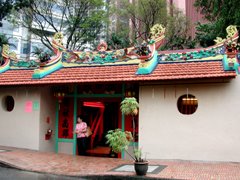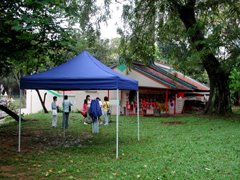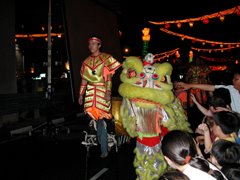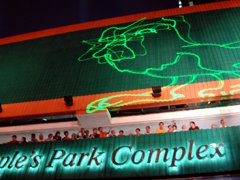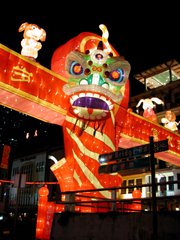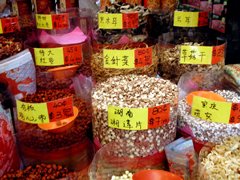
Last Sunday, I took a walk to People's Park Centre basement, to my old Barber shop. You see, the new one at People's Park Complex was no more there. Businesses seem to come and go so fast these days. So, after two flings with the new barbers, I went back to the old.
It was the last Sunday before the Chinese New Year. As with Chinese traditions, the guys should go for their haircut before the New Year. So, as if it was a calling from within I joined the crowd. Gone are the days when if you have long hair you might be served last. (^^)
The barber chairs were all occupied. All the barbers were busy. Outside, on the benches were two guys - in their fifties, I think - with the towel all wrapped up on their heads. Ah, having a cold "perm". Another three were having their hair swept backwards, like the Rock-n-Roll dancers in Harajuku, Japan on a Sunday afternoon. Yes, they were having their hair tinted black.
The barbers of the old have their business evolved too, providing "perming" as well as dying. Digging of the ears is now a thing of the past. The electric shavers (or rather hair cutters) have replaced the traditional mechanical ones. Razor blades for shaving are now fitted with use and throw blades. AIDS have changed the ways shaving tools are used.

This barber shop - called Good World - has been around for quite a while. It is the modern barber shop of the old, but not of the new generation type. No, no lady barbers. An interesting thing about this barber shop is that the barbers all speak Hock Chew (Fuzhou) - I think. With the customers, they speak Hokkien or Mandarin. It was a surprise to me when I went this Sunday and a guy (new face) greeted and conversed with me in English. Changing Times. (^^)
Nothing like going to the same old place, doze off and have one's hair trimmed, amidst the chatters in Hock Chew, the comparisons of 4-D results and even some tall tales from some customers to the barbers. (^^)
